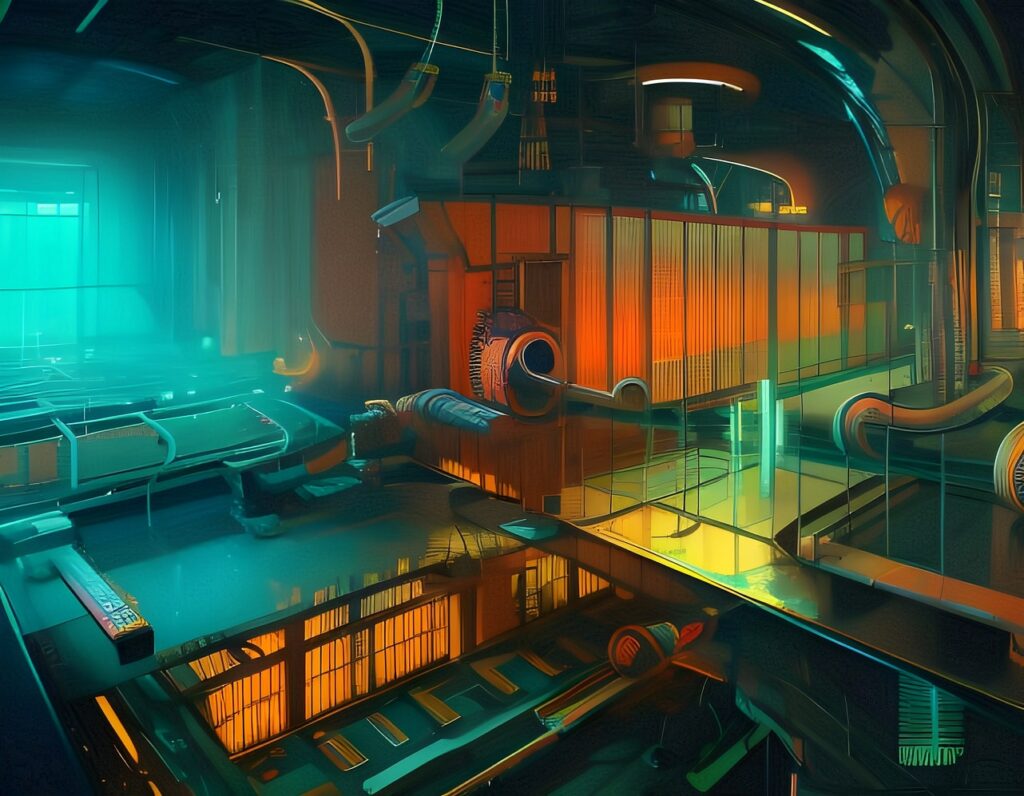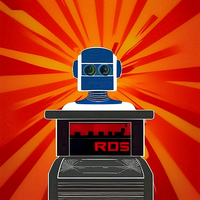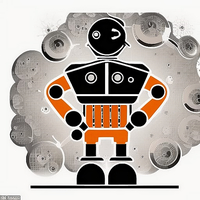
Article Topics.
ToggleCareers vulnerable to AI disruption.
AI automation in the workplace is advancing exponentially. Many commercial organisations have embraced artificial intelligence and implemented systems that hopefully will increase their profit margins.
Robotics is one example where the need for human employees has been drastically reduced, thereby saving, in the long term, the costs of labour. This is obviously a big plus for the organisation but has implications for general job security.
Artificial intelligence is now impacting the job market, with many roles being replaced either by machines or smart machine learning algorithms. With rapid technological advancement comes the likelihood of career disruption for many.
Vanishing customer service representatives.
 Customer service representatives are among the first to be replaced by AI. Companies may provide 24/7 customer support without the need for human employees in many circumstances by using chatbots and virtual assistants.
Customer service representatives are among the first to be replaced by AI. Companies may provide 24/7 customer support without the need for human employees in many circumstances by using chatbots and virtual assistants.
This is happening now in many major organisations.
In the e-commerce and retail industries, where chatbots are employed to respond to client inquiries and handle complaints, this tendency is particularly obvious. The procedure is that any simple requests are dealt with by a bot, while the more complicated problems are diverted to a human to solve.
Delete those data entry clerks.
Data entry clerks are also at risk of being replaced by artificial intelligence.
Machines can now reliably transcribe and analyse data with little to no human interaction thanks to advances in machine learning and natural language processing.
In order to reduce the need for manual data entry, software that can read and understand data from invoices, receipts, and other documents has been developed.
Generally, any clerical position that involves standard, repetitive tasks is likely to be replaced by AI.
Disappearing receptionists.
 In the years to come, machine learning algorithms will probably displace receptionists as well.
In the years to come, machine learning algorithms will probably displace receptionists as well.
With the use of virtual assistants and chatbots, companies can automate their front desk operations, handling visitor check-ins and answering basic queries.
This immediately reduces costs for the company. If the receptionist remains on the payroll, it could mean that time could then be spent on more complex tasks requiring human initiative.
Cheerio telemarketers.
Telemarketers are also vulnerable to being replaced by artificial intelligence.
With the rise of automated calling systems and voice recognition software, organisations can now make hundreds of calls per day with minimal human input.
By doing this, the company’s message is consistently and accurately conveyed while also saving time and money.
Insurance underwriters away.
 If you’re involved in the insurance industry, there is a strong possibility that you will be adversely affected by artificial intelligence.
If you’re involved in the insurance industry, there is a strong possibility that you will be adversely affected by artificial intelligence.
With the increasing use of machine learning algorithms, insurance risk can now be accurately assessed and premiums quickly calculated without the need for human intervention.
Again, this is a big savings for the insurance company and, arguably, also ensures that premiums are calculated accurately and fairly.
Diminishing bank tellers.
The banking sector has enthusiastically embraced the development of artificial intelligence.
Bank tellers and other staff are definitely at risk.
Customers may now complete basic banking chores from their cellphones, eliminating the need for in-person interactions with bank employees, thanks to the growth of mobile banking and online transactions.
Additionally, automated teller machines (ATMs) have already replaced many banking staff and the need for branch networks. It is likely that many banks will disappear from the high street altogether, preferring to transact business digitally with the assistance of AI.
Bearish for stock traders.
 Since algorithmic trading has become more popular, robots are now able to analyse massive volumes of data and make trade decisions more quickly and accurately than people.
Since algorithmic trading has become more popular, robots are now able to analyse massive volumes of data and make trade decisions more quickly and accurately than people.
The days of the stock trader appear to be definitely numbered.
Such advancements in artificial intelligence reduce costs for the investment firm but, it is argued, also ensure that trades are executed at the optimal time and price.
However, complete confidence in an automated trading system totally dependent on artificial intelligence is yet to be achieved.
It seems the human touch is still necessary to assure investors.
There is no need for truck drivers.
Self-driving vehicles are slowly making their way onto the roads. The technology, underpinned by artificial intelligence, is gradually developing, and safety standards are improving.
It surely will not be too long before the self-driven truck will be transporting goods throughout the road networks. This would obviously reduce costs for the shipping company and, arguably, also ensure that goods are delivered faster and more efficiently.
However, the role of the truck driver is likely to be severely diminished.
Warehouse workers can go walk.
 Robots in production units have now become common, and this trend is likely to increase dramatically.
Robots in production units have now become common, and this trend is likely to increase dramatically.
Any manual, repetitive task lends itself to the use of AI automation.
The place for the unskilled worker in a factory will disappear. Robotics and automation have made it possible for machines to perform routine warehouse operations like packaging and sorting, which has reduced the demand for human labour.
The future of work and AI
The argument is that artificial intelligence will make our lives easier and more efficient. Whether we will be happier and more contented as human beings is another matter open for discussion.
Undoubtedly, there are and will be many jobs at risk of automation; automation that will be driven by artificial intelligence systems.
AI is replacing human jobs now.
Automation and job displacement due to artificial intelligence could become a serious cause of societal unrest. Some governments are recognising this future problem, whilst others are purely focusing on the financial benefits.
If it can be shown that the economic benefits of artificial intelligence will be equally distributed and that suitable job retraining will be introduced for those directly affected, then the AI age could be one of improved opportunity.
Let’s hope that will be the case as the twenty-first century advances.

